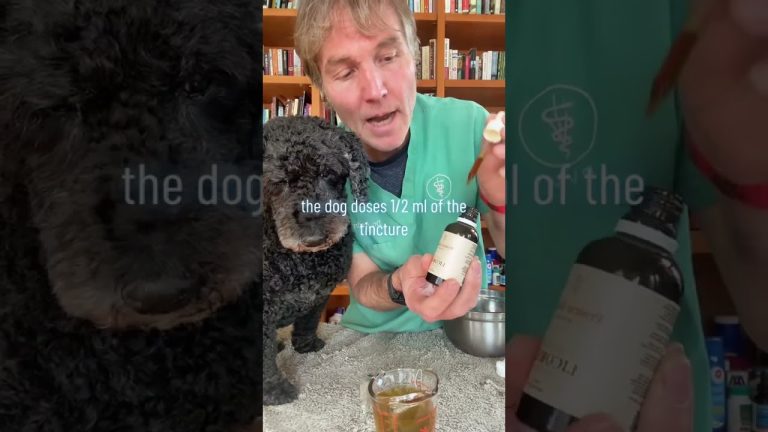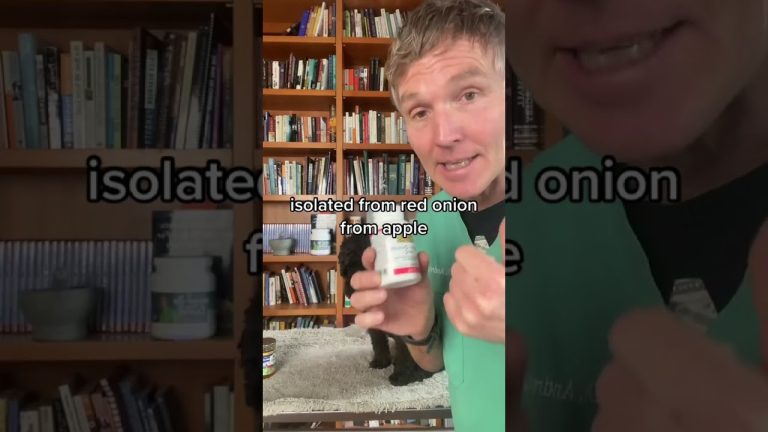Allergic Dog NOT responding to antihistamine: 3 steps to STOP the itching
When a dog is allergic and does not respond to antihistamines, it can be a frustrating experience for their owner. In this blog post, the focus will be on three effective steps to help stop the itching and provide relief for their furry friend.
Allergic Dog NOT responding to antihistamine: 3 steps to STOP the itching
Introduction
Are you a dog owner struggling with an allergic pup who just can’t seem to get relief despite giving them antihistamines? Look no further! Dr. Jones has some revolutionary steps to help your furry friend find comfort and relief. Let’s dive into the details.
The Frustration of Allergic Reactions
Having a dog with allergies can be a real challenge. It’s heartbreaking to see them scratching and itching, unable to find respite. Antihistamines are a common solution, but what happens when they stop working? That’s where Dr. Jones comes in to save the day.
Step One: Rule Out Sarcoptic Mange
If your dog is chomping away post-Benadryl dose, it might be due to environmental allergies. Dr. Jones recommends starting with a treatment like Revolution to eliminate the possibility of sarcoptic mange. It’s crucial to address this first to pave the way for effective relief.
Step Two: Combat Yeast with Specialized Shampoo
Yeast can exacerbate your dog’s itching, creating a vicious cycle of discomfort. Dr. Jones advises using a specialized shampoo to tackle this issue head-on. By addressing yeast, you’re one step closer to seeing your furry companion at ease.
Step Three: Natural Antihistamines and Essential Fatty Acids
When conventional methods fall short, it’s time to turn to nature’s remedies. Dr. Jones advocates for using essential fatty acids and natural antihistamines. If the first two steps haven’t provided the desired outcome, incorporating these natural alternatives might do the trick.
Dr. Jones’ Essential Fatty Acid Supplement and Bioactive Quercetin
For essential fatty acids, Dr. Jones recommends his high-quality supplement, designed to support your dog’s well-being. As for natural antihistamines, bioactive quercetin tops the list. These recommendations offer a holistic approach to managing your pet’s allergies.
Where to Find More Helpful Tips
Curious to access more insightful advice from Dr. Jones? You’re in luck! He offers a free book on veterinary secrets that delves into various issues faced by pet owners. Follow Veterinary Secrets across different platforms to stay updated on the latest tips and tricks to keep your furry friend healthy and happy.
Conclusion
In conclusion, dealing with an allergic dog that doesn’t respond to antihistamines can be a daunting task. However, with Dr. Jones’ three-step approach, there’s hope for alleviating your pet’s discomfort. By ruling out sarcoptic mange, addressing yeast, and incorporating natural remedies, you can help your dog bid farewell to incessant itching and scratching.
FAQs
- What should I do if my dog’s itching persists despite antihistamines?
- How can I differentiate between environmental allergies and other skin conditions in my dog?
- Is it safe to use essential fatty acids for dogs with allergies?
- How long does it usually take to see improvement following Dr. Jones’ recommended steps?
- Where can I find Dr. Jones’ free book on veterinary secrets?






